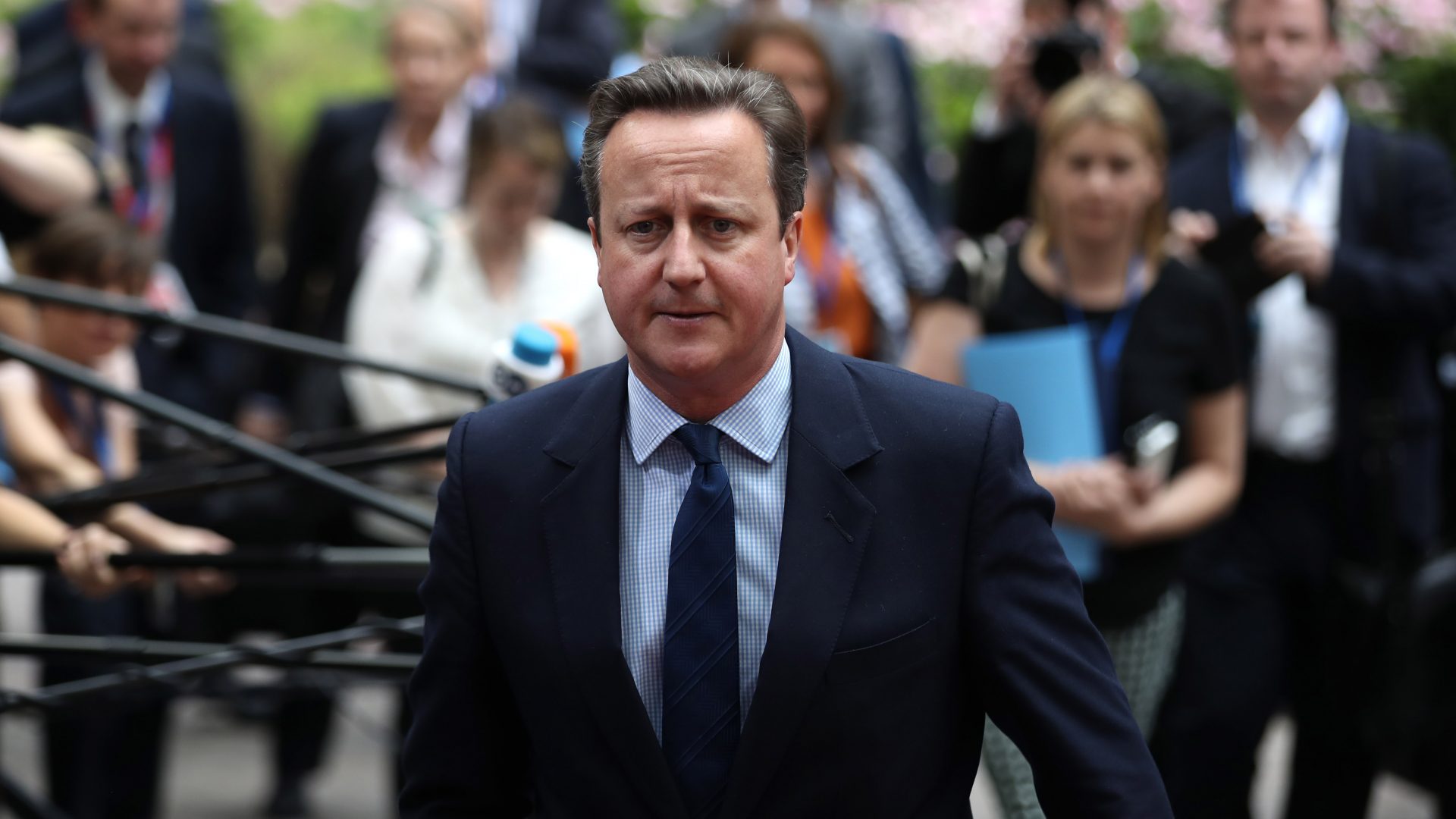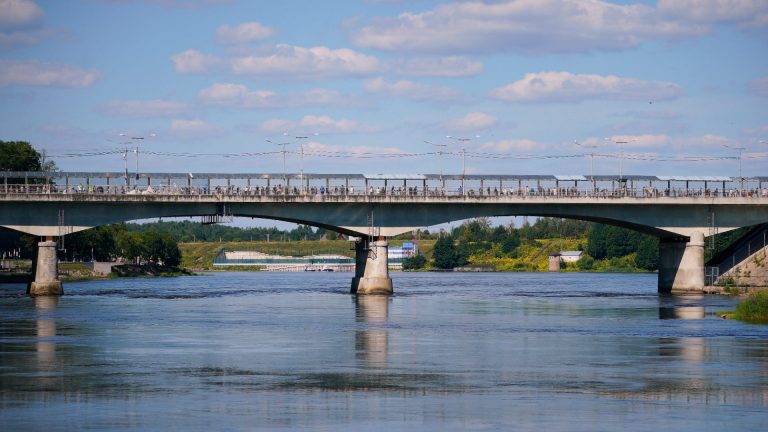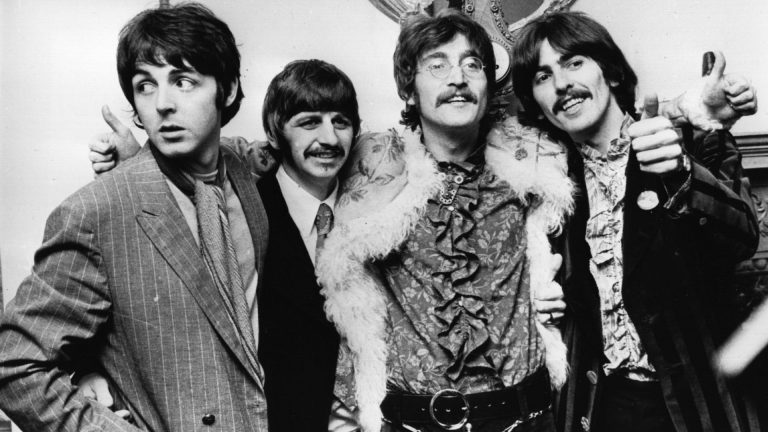One of the most important lessons to be learned from the history of Britain’s relations with the European Union over the last decade is never to initiate a formal negotiation with Brussels without first being clear what you want and whether you are likely to get it.
David Cameron, who still has a claim to be the worst British prime minister of modern times despite what came after him, found this out the hard way. He managed to launch not one, but two negotiations with the EU without taking the elementary diplomatic precaution of rolling the pitch – with disastrous consequences for his career, his reputation and the national interest.
The first was in December 2011, when he threatened to veto an EU treaty change deemed necessary to the survival of the single currency, unless fellow leaders agreed to a series of incoherent, politically impossible last minute demands. Fortunately for global financial stability, Angela Merkel got wind of Cameron’s crude blackmail and negotiated a new eurozone treaty that did not need Britain’s vote.
But the political fallout of this diplomatic debacle was to set the Tories on their path to Brexit. Two years later, Cameron made the same mistake again, promising to reform Britain’s relationship with the EU ahead of a referendum, without knowing what reform he wanted or whether it was achievable. The rest, as they say, is history.
Is Sir Keir Starmer about to fall into the same trap? He took office two months ago vowing to “reset” Britain’s relations with the EU, while simultaneously insisting that he will not compromise his red lines of no return to the single market, customs union or free movement. Yet so far there is little sign of a realistic plan to deliver this reset.
He seems to be betting that Labour’s pro-European credentials and a changed geopolitical context will unlock doors that were shut to the Tories. Instead, he risks joining the long line of British politicians who have tried to negotiate with Brussels, convinced that they possess the unique charm and charisma to erase the EU’s red lines, only to be left frustrated when a deal doesn’t fall into their lap.
Starmer’s first challenge is to convince Brussels to reopen a deal that took four ill-tempered years to negotiate but which it now believes is working well. Indeed, Britain has dropped far down the EU’s list of priorities. With a new Commission due to take office in December, the main focus in Brussels is on reviving the EU’s flagging economy, securing its borders, boosting provision for Europe’s defence, preparing for possible enlargement including to Ukraine and managing the clean energy transition.
Mario Draghi has just published a 400 page report on how to revive the EU’s competitiveness with enough recommendations to preoccupy the EU agenda for years to come. At a two-day conference in Brussels this month to discuss the priorities for the incoming Commission, I was struck that Britain was barely mentioned.
Besides, a new negotiation will require the member states to hand the EU a new negotiating mandate, which is typically a lengthy process in its own right. They are hardly going to do that unless Starmer is offering them something eye-catching in return. Starmer may think he is on solid ground by choosing to make his opening gambit a pitch for an EU-UK security and defence pact. After all, isn’t that precisely what the EU offered in the Brexit negotiations, but which Boris Johnson carelessly rejected?
Meanwhile, by defining security as broadly as possible to include economic security, climate change, biosecurity, cyber and energy security, Labour hopes to establish a basis for a wider renegotiation of the trading relationship.
The flaws in this strategy are already becoming apparent. Everyone can agree that Britain and Europe should work closely together on security, as they already do through Nato. But what will this proposed new security pact actually do? If it is simply a new talking shop where British ministers and officials can meet and engage more regularly with their European counterparts, then that should be easy enough.
It is absurd that the EU has regular annual summits with many of its western allies, including Australia, Canada, the United States and South Korea, but not with Britain. But for Britain to join EU defence programmes would mean accepting EU command, while current EU defence industry initiatives are limited to EU members.
Meanwhile, the idea that closer defence cooperation can somehow be traded for greater access to the EU single market is for the birds. Theresa May tried to do that and was immediately rebuffed. Brussels remains resolutely opposed to any attempt by Britain to “cherry pick” its single market. Nonetheless, the government is seeking a veterinary agreement to reduce border frictions, mutual recognition of professional qualifications and improved touring rights for musicians.
At the very least, improved access to the single market will come with strings attached including alignment with EU rules and the jurisdiction of the European Court of Justice. That is hard to square with Starmer’s insistence that Britain will not be a rule-taker.
Then there is the question of what Brussels will want in return for any broader reset. Like his recent Tory predecessors, Starmer seems to have been surprised to discover that the EU will have its own offensive interests in any negotiation. It has already made clear that a precondition for any new deal will be full implementation of the existing one, not least in relation to Northern Ireland, where Britain is still not conducting the agreed border checks that Brussels deems essential to protect its single market.
The EU has also been clear that it wants a youth mobility deal that will restore the right of young Europeans and Britons to work and study in each other’s countries for a limited period of time. Yet Starmer, bafflingly, has rejected this out of hand. That hardly suggests a prime minister willing to invest any political capital in securing a deal.
In fact, Starmer will have his work cut out over the coming years simply to avoid the trading relationship getting worse. Even now, barely a day passes without some new horror story of the impact of Brexit on different industries. According to a new report by Aston University Business School, fewer firms are trading with the EU.
What’s more, the value of imports and exports fell by 32 per cent and 27 per cent respectively in the two years after the Trade & Cooperation Agreement came into force, as supply chains were reconfigured. The government is yet again delaying the introduction of border checks on imports of fresh food that were supposed to have come into force on December 31 2020 amid fears it would create further border delays.
Meanwhile, Boris Johnson’s Brexit deal contains numerous cliff edges and reviews with the potential to trigger a further deterioration in trade. The current post-Brexit deals on fisheries and the electricity market expire in 2026. Tariffs on the export of British-made electric vehicles will kick in in 2027; the Commission must decide next year whether to continue to the current financial services equivalence regime.
European regulators can be certain to use whatever levers they can to lure more financial services business away from London to the continent. Europe’s carbon border adjustment mechanism will come into force in 2026, a year before Britain’s, raising the prospect that polluting countries will dump surplus capacity on Britain.
Further trouble lies ahead as the EU seeks to deepen its single market and improve its competitiveness. To the extent that the new Commission makes any progress on its economic agenda, it will be driven by the Draghi report. That report may make no mention of Britain yet nearly everything that it recommends – on industrial subsidies, reforming EU competition law, boosting research and development expenditure, deepening EU capital markets, integrating EU energy markets, promoting defence industry integration -– will have huge implications for Britain.
Bizarrely, the British government appears to have made no attempt to engage with the former Italian prime minister while he was writing his report, yet it is likely to spend the next five years trying to influence from the outside the way that it is implemented.
If Starmer is really serious about a reset, it is clear that he needs to revisit his red lines and make a much bolder offer. The danger is that by falling into the Cameron trap, he has set himself up for disappointment. Perhaps that reality is dawning on him: it is striking that he has yet to meet with Ursula von der Leyen, the Commission president, since taking office. Instead, he has been focusing his diplomatic efforts on meetings with EU national leaders.
But if he thinks he can somehow bypass the Commission and reset the relationship via bilateral deals with member states, he has not been paying attention. The other great lesson of the last decade and a half of EU negotiations is that efforts at divide and rule in the EU never work. Those who fail to learn from the mistakes of the past are doomed to repeat them.









